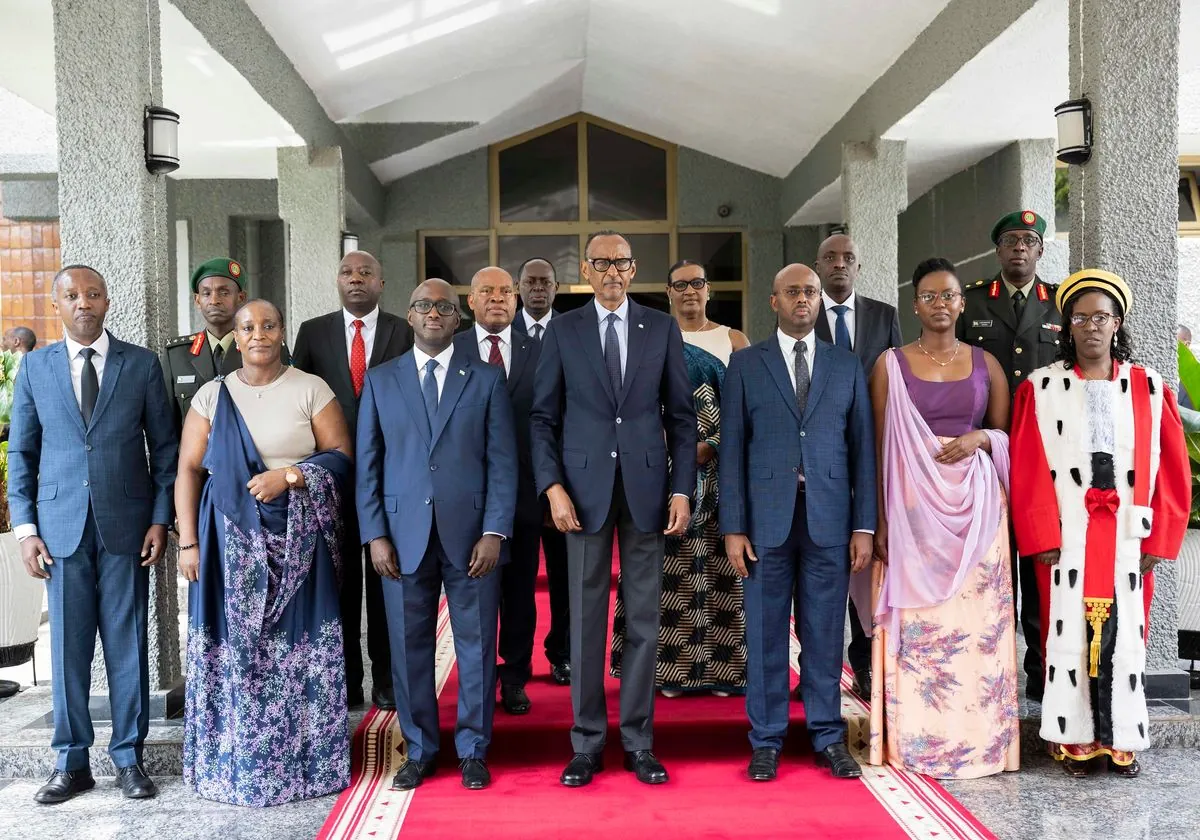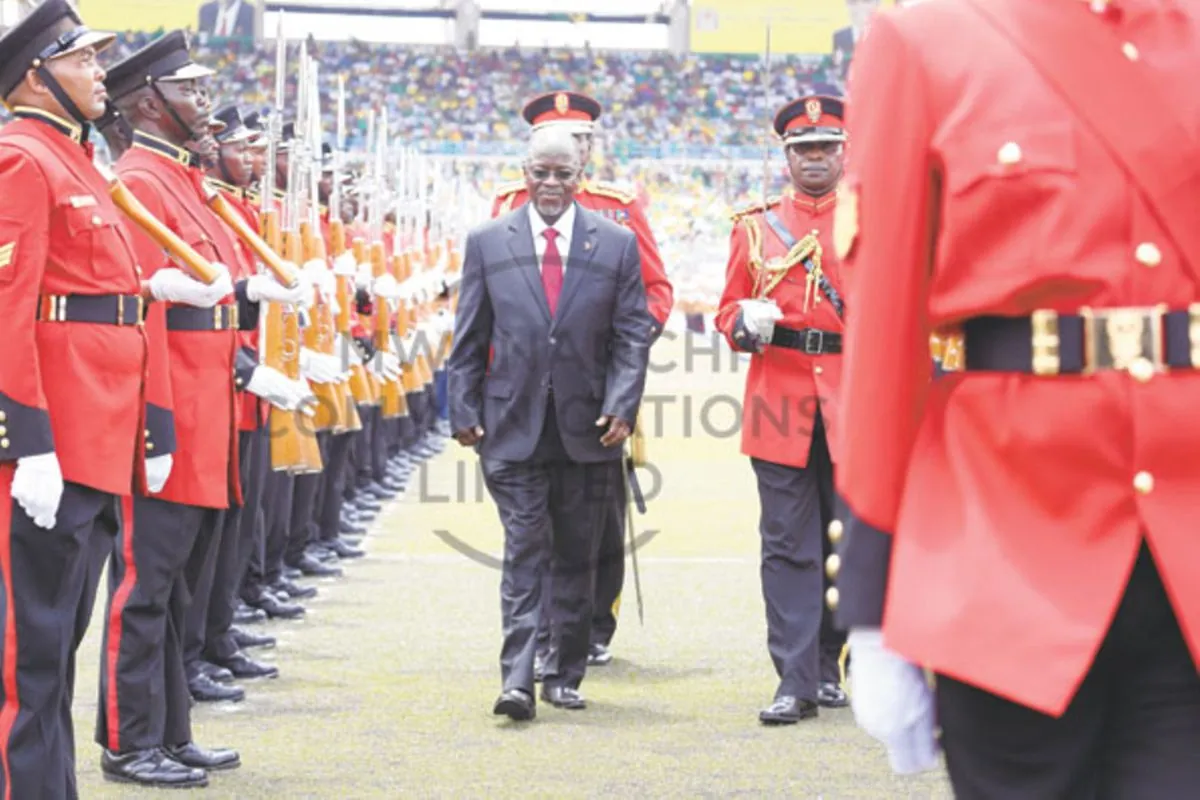Rwanda's Kagame Sworn In for Fifth Term Amid Controversy
Paul Kagame, Rwanda's long-serving leader, begins another five-year term after a landslide victory. The election faced criticism over barred candidates and alleged suppression of dissent.

Paul Kagame, Rwanda's long-serving leader, commenced his fifth term as president on August 11, 2023, following a landslide victory in the previous month's election. The inauguration ceremony took place at Kigali's Amahoro National Stadium, with thousands in attendance and 22 African heads of state present.
The election results showed Kagame securing 99.18% of the vote, a figure that has raised eyebrows among international observers. Critics point to the barring of eight candidates, including some of Kagame's most vocal opponents, by the electoral commission. This move has led to concerns about the fairness and transparency of the electoral process.
Kagame's tenure, spanning nearly a quarter-century, has been marked by significant economic progress and stability for Rwanda. Under his leadership, the country has experienced an average annual GDP growth of 7-8% since 2000, transforming from a war-torn nation to an attractive destination for investment and aid. Rwanda has also made remarkable strides in healthcare, with life expectancy increasing from 29 years in 1994 to 69 years in 2019.
However, Kagame's reputation has been tarnished by allegations of human rights abuses and suppression of dissent. Critics have also accused his government of supporting rebels in the Democratic Republic of Congo, claims that Kagame has consistently denied.
The swearing-in ceremony was a colorful affair, with attendees donning T-shirts in the national colors of yellow, green, and blue. Kagame received a 21-gun salute amidst cheers from the crowd, symbolizing the strong support he maintains among many Rwandans.

Rwanda's constitution was amended in 2015, allowing Kagame to potentially remain in power until 2034. This change has been a point of contention, with some viewing it as a move to entrench his rule.
The two opposition candidates who participated in the election, Frank Habineza from the Democratic Green Party and independent Philippe Mpayimana, both conceded defeat. However, rights groups have criticized the election, citing a crackdown on media, opposition, and civil society groups.
Despite the controversies, Kagame's government has implemented several progressive policies. Rwanda boasts one of the highest percentages of women in parliament globally and has made significant progress in education, with primary school enrollment reaching nearly 100%. The country has also implemented a universal healthcare system covering over 90% of the population.
As Kagame begins his new term, Rwanda continues to pursue ambitious development goals, aiming to become a middle-income nation by 2035 and a high-income country by 2050. The nation's "Vision 2020" development program focuses on transforming Rwanda into a knowledge-based economy.
While Kagame's leadership has undoubtedly brought stability and progress to Rwanda in the aftermath of the 1994 genocide, the country's political landscape remains complex. The challenge for Rwanda moving forward will be to balance economic development with political openness and respect for human rights.
"We have repeatedly rejected criticism regarding the election process during the election period."
As Rwanda enters this new chapter under Kagame's continued leadership, the international community will be watching closely to see how the country navigates the delicate balance between progress and political freedoms.


































